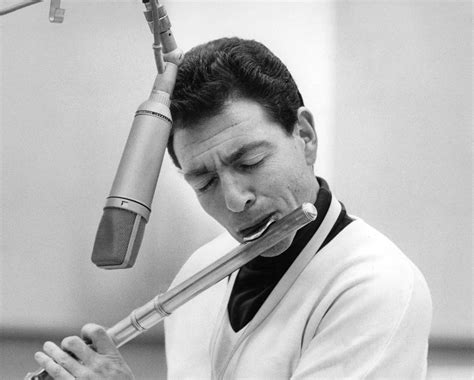Top 22 Quotes & Sayings by Paul Horn
Explore popular quotes and sayings by an American musician Paul Horn.
Last updated on November 18, 2024.
Healing happens between the notes. I had to allow the space and not be afraid, and to know that things happen in space. You have to let the space settle. If you let go, you transcend and experience the stillness, and that is the healing. One ingredient of health is rest. Activity comes from inactivity. The basis of sound is silence. Stillness is basic to health.
I've approached music with the understanding that knowledge is available regarding tones and their effect upon the body. I think the father of that knowledge was the mathematician Pythagoras who lived several thousand years ago. Pythagoras was also a fine musician and he knew specifically what tones would affect which parts of the body.




















